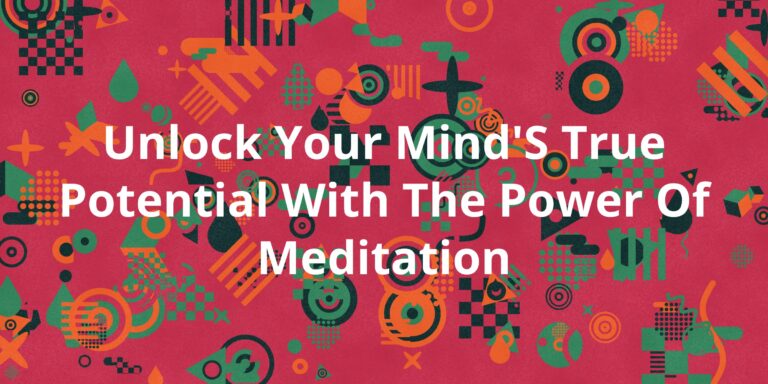Mindfulness meditation has been practiced for thousands of years and is a powerful tool for unlocking inner peace and well-being. In recent years, mindfulness has become increasingly popular in the modern world as people seek ways to reduce stress, improve focus, and enhance their overall quality of life.
But what exactly is mindfulness meditation? Simply put, it is the practice of being present and fully engaged in the current moment, without judgment or distraction. This means paying attention to your thoughts, feelings, and sensations as they arise, without getting caught up in them or trying to change them.
So how does mindfulness meditation work? The science behind meditation is still not completely understood, but research has shown that regular practice can lead to changes in the brain and nervous system. For example, studies have found that meditation can increase gray matter density in areas of the brain related to attention, emotional regulation, and self-awareness.
Meditation also activates the parasympathetic nervous system, which is responsible for the body’s “rest and digest” response. This helps to reduce stress and promote relaxation, as well as boosting the immune system and reducing inflammation.
In addition to these physical benefits, mindfulness meditation has also been shown to improve mental health. Studies have found that regular practice can reduce symptoms of anxiety and depression, increase self-esteem, and improve cognitive function.
But perhaps the most profound benefit of mindfulness meditation is its ability to increase inner peace and happiness. By cultivating a nonjudgmental awareness of your thoughts and feelings, you can develop a deeper understanding of yourself and your experiences, leading to greater contentment and fulfillment in life.
So how do you begin practicing mindfulness meditation? There are many different techniques and methods available, but the most important thing is to find one that works for you and to commit to regular practice. You might start by setting aside a few minutes each day to sit quietly and focus on your breath, or by incorporating mindfulness into your daily activities, such as eating or walking.
There are also many guided meditations and resources available online, which can be a helpful way to get started if you’re new to meditation. Whatever method you choose, the key is to approach meditation with an open and nonjudgmental mindset, and to be patient and persistent in your practice.
In conclusion, mindfulness meditation is a powerful tool for unlocking inner peace and well-being. By cultivating a nonjudgmental awareness of your thoughts and feelings, you can develop greater self-awareness, reduce stress, and improve your overall quality of life. So why not give mindfulness meditation a try today and see how it can transform your life?



